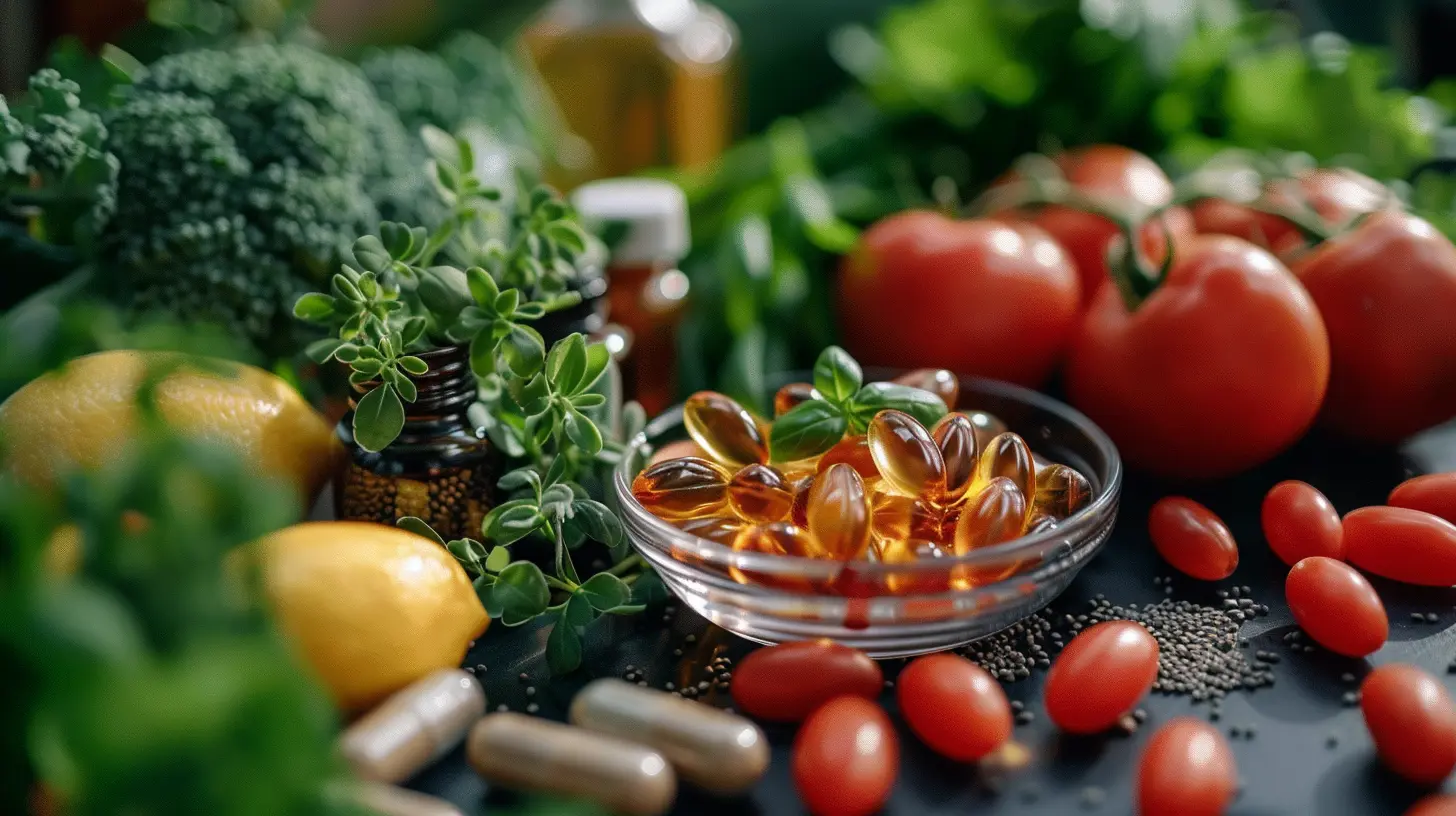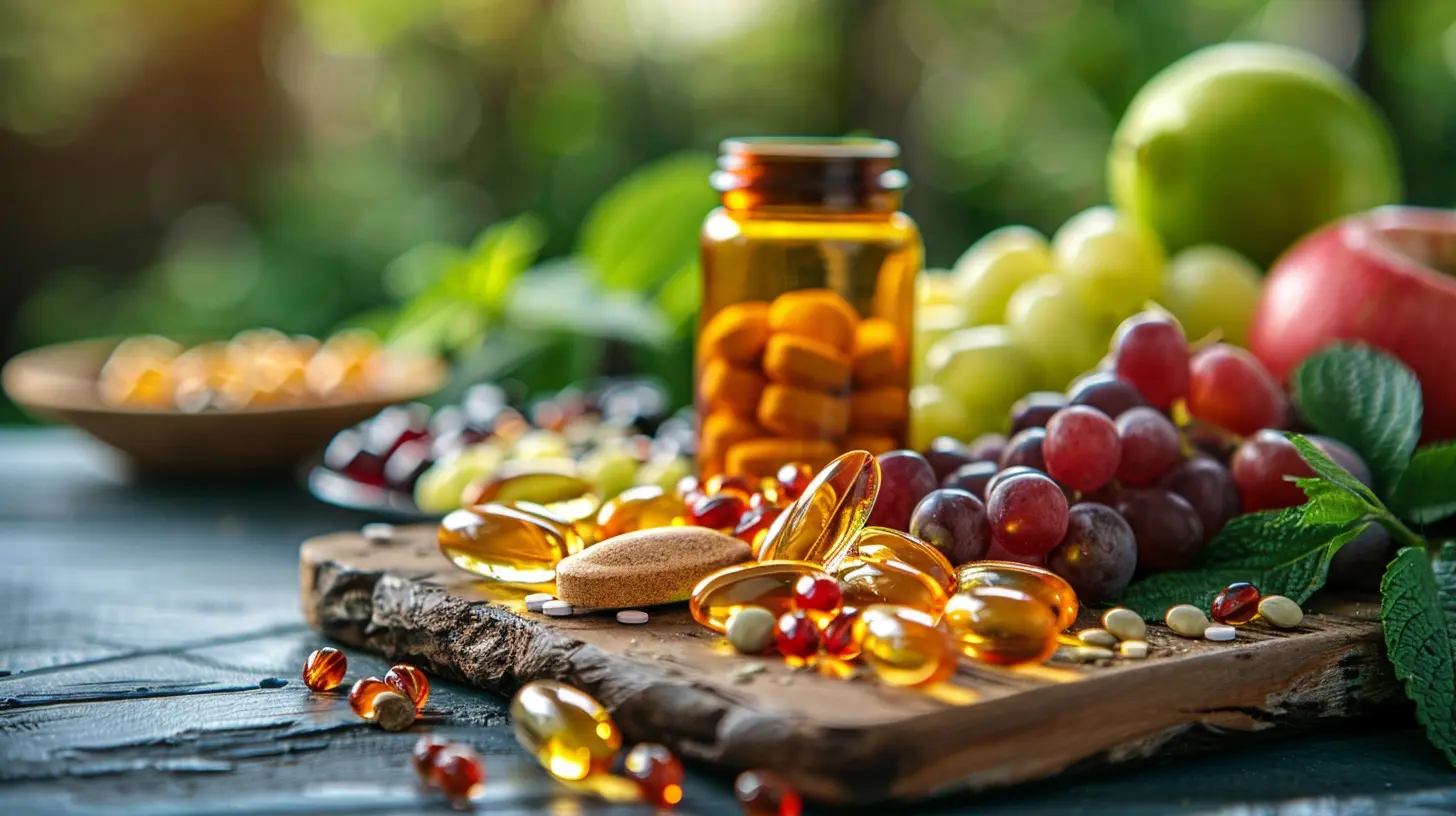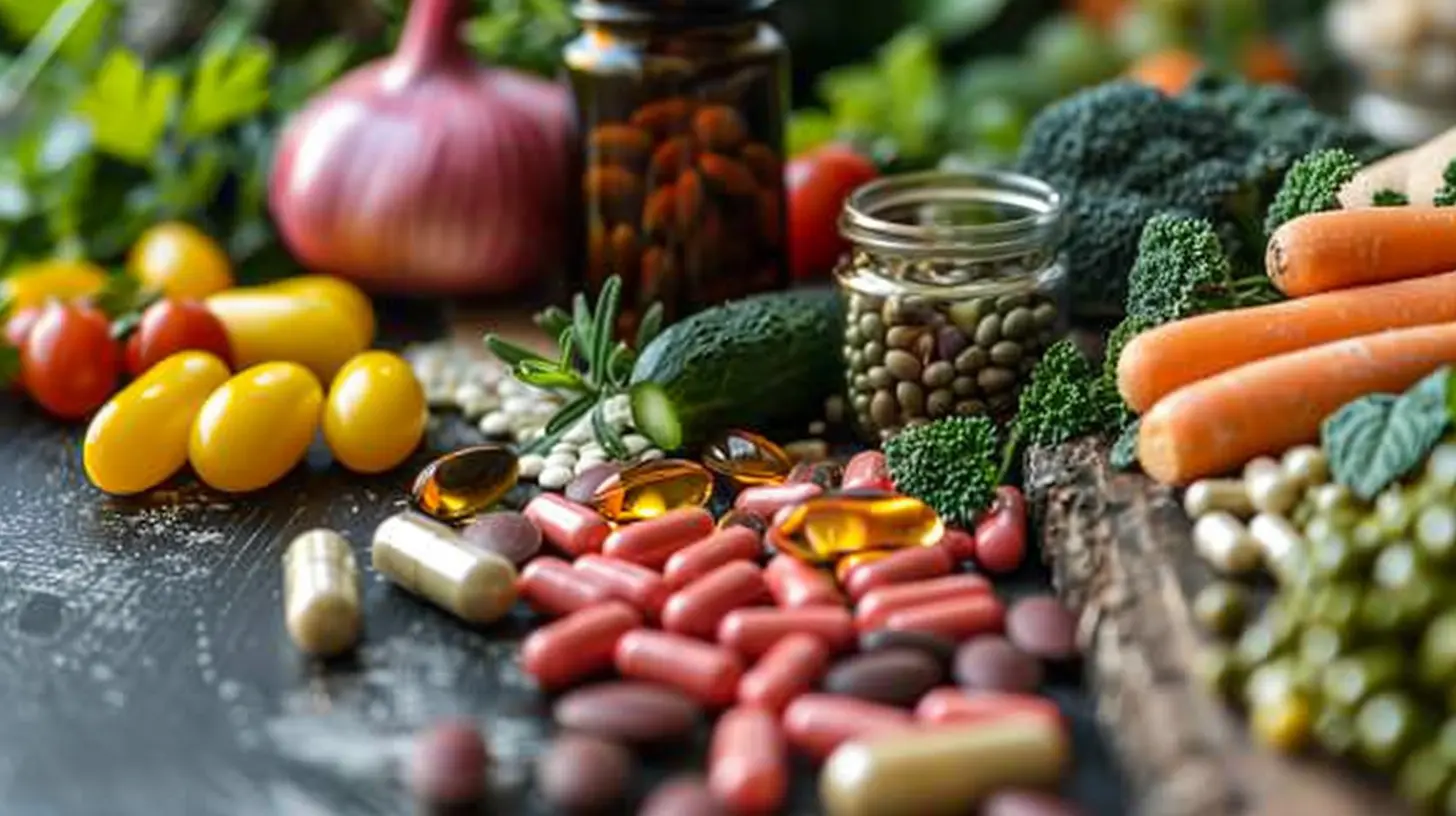Supplements vs. Whole Foods: What’s the Best Way to Get Your Nutrients?
25 August 2025
Let’s face it—we’re all trying to eat better, live longer, and feel our best. Whether it’s scrolling through Instagram wellness influencers sipping smoothies or walking down the seemingly endless supplement aisle at the store, it’s easy to get overwhelmed. Some folks swear by their daily vitamin stash, while others stand firm that whole foods—fruits, veggies, grains, and all—are the gold standard for getting nutrients.
So, what’s the real deal here? Are supplements really essential, or is Mother Nature already giving us everything we need on our plates? Let's unpack this together in plain language and figure out which route—pills or plants—gets us to Nutrient Town most effectively.
The Human Body Is a Nutrient-Hungry Machine
From the moment you wake up until your head hits the pillow, your body is doing a lot behind the scenes. Building cells, generating energy, pumping blood, repairing tissue—it’s like a nonstop factory that runs on vitamins and minerals.These nutrients? You need 'em. We're talking about essentials like:
- Vitamin A, C, D, E, K
- B Vitamins (like B12 and folate)
- Minerals like iron, magnesium, calcium, zinc
Without them, your energy tanks, your immune system weakens, and even your mood takes a hit (yup, brain chemistry is real).
Whole Foods: Nature’s Multivitamin
Whole foods are foods in their natural or minimally processed state. Think fresh fruits, leafy greens, nuts, seeds, legumes, and lean proteins. These foods are not only rich in nutrients, but they also come with a whole package—fiber, antioxidants, phytonutrients, and enzymes. It’s like getting a deluxe combo meal instead of just the fries.Why Whole Foods Work So Well:
- Nutrient synergy: The nutrients in whole foods work together like a perfectly choreographed dance. For example, vitamin C helps absorb iron better when you eat them together in foods like spinach with a squeeze of lemon.- Fiber factor: Whole foods are naturally high in fiber, which supports digestion, balances blood sugar, and even keeps your gut bacteria happy.
- Lower risk of toxicity: It's nearly impossible to overdose on vitamins from whole foods. The body knows how to handle nutrients in their natural form.
Let’s say you eat an orange. You’re not just getting vitamin C—you’re also taking in fiber, potassium, antioxidants, and water, all in one juicy bite. It’s a nutrient party, and everyone’s invited.
But Supplements Can Be Super Helpful Too
Now, before we go throwing out our vitamin bottles, let’s get real: supplements aren’t the enemy. In fact, in some situations, they can be lifesavers—literally.When Supplements Make Sense:
- Nutrient deficiencies: If you’ve been diagnosed with low iron, vitamin D, or B12, taking a supplement can help fill the gaps fast.- Special diets: Vegans might need B12 and omega-3s. People with lactose intolerance may need calcium and vitamin D. Keto folks might miss out on certain electrolytes.
- Busy lifestyles: We’re not always perfect eaters. Travel, stress, or illness can throw our eating habits off track.
- Aging: As we get older, our bodies don't absorb nutrients as efficiently. Supplements can help maintain levels without relying entirely on diet.
Supplements are like backups—they step in when your diet can’t quite do the job. But here’s the thing: they should supplement, not replace your meals.
Not All Supplements Are Created Equal
Walk into a supplement store and you’ll find shelves upon shelves of options. Capsules, tablets, gummies, powders—even sprays. But just because a label looks fancy doesn’t mean it’s effective or safe.Watch Out For:
- Poor quality: Some supplements don’t have what they claim or come with unnecessary fillers.- Poor absorption: Your body might not absorb synthetic versions of nutrients as well as those from food.
- Overdosing: More isn’t always better. Taking too much of certain nutrients (like iron or vitamin A) can be harmful.
- Drug interactions: Supplements can mess with some medications, so it’s important to check with your doctor.
Think of it like this: Just because a car looks shiny doesn’t mean it runs well. Quality matters.
The Emotional Side of Eating
There’s another piece of the puzzle: how food makes us feel. Eating a colorful salad or a warm bowl of soup can nourish more than just your body—it feeds your soul. It's satisfying, comforting, and connects us to our culture, memories, and even each other.Popping a pill can’t give you that.
Plus, preparing and eating whole foods encourages mindfulness. You think about what you’re eating, where it comes from, and how it affects your body. It's a whole experience, not just a task.
Supplements vs. Whole Foods: Head-to-Head Comparison
| Criteria | Whole Foods | Supplements ||------------------------|----------------------------------------|------------------------------------------|
| Nutrient Complexity | Contain multiple, interacting nutrients | Usually isolated nutrients |
| Absorption Rate | Higher (better bioavailability) | Depends on form and quality |
| Convenience | Requires planning and prep | Super quick and easy |
| Risk of Overdose | Very low | Possible if taken in high amounts |
| Dietary Fiber | High | None |
| Support for Gut Health | Yes (prebiotics, enzymes) | Not usually |
| Emotional Connection | Provides joy and satisfaction | None (unless you love taking capsules?) |
So…What’s the Verdict?
Here’s the truth: You can’t out-supplement a poor diet. Whole foods should always be your foundation—period. They offer a complex range of nutrients your body understands and loves. But supplements? They’re not villains. Used wisely, they fill in the gaps, especially when life throws curveballs.Think of it like this: Whole foods are the main engine of your car. Supplements? They’re the oil change or the spare tire. You wouldn’t drive without the engine, but the extras are helpful in a pinch.
Tips for Getting the Best of Both Worlds
Knowing both have their place, here’s how to make them work together:1. Focus on food first: Build your meals around plants, whole grains, lean proteins, and healthy fats.
2. Use supplements wisely: If you suspect a deficiency, get tested first. Don’t guess.
3. Choose high-quality products: Look for third-party tested brands and avoid unnecessary fillers.
4. Talk to a healthcare provider: Especially if you’re pregnant, elderly, or on meds.
5. Be patient with progress: Whether you adjust your diet or start a supplement, your body needs time to adapt.
Common Nutrients People Supplement—and What Foods Contain Them
Here’s a quick cheat sheet of commonly supplemented nutrients and what foods to find them in naturally:| Nutrient | Found in Whole Foods |
|----------------|-----------------------------------------------|
| Vitamin D | Fatty fish, egg yolks, fortified dairy |
| Vitamin B12 | Meat, eggs, dairy (fortified plant milks too) |
| Iron | Spinach, lentils, red meat, fortified cereals |
| Calcium | Dairy, tofu, leafy greens, almonds |
| Omega-3s | Salmon, flaxseeds, chia seeds, walnuts |
| Magnesium | Nuts, seeds, whole grains, bananas |
| Zinc | Meat, pumpkin seeds, legumes |
| Folate | Leafy greens, beans, citrus fruits |
Try building your plate with those in mind before hitting the supplement stash.
Final Thoughts: Be Kind to Yourself
There's no perfect diet. No magic pill. No one-size-fits-all solution when it comes to nutrition. What matters most is being intentional. Pay attention to how you feel after you eat. Ask yourself: Am I energized? Am I sleeping well? Is my mood steady?Food isn’t just fuel—it’s information. It tells your body how to function. So don’t stress about choosing sides in the “supplements vs. whole foods” debate. Use both as tools in your wellness toolbox, and always strive to nourish—not punish—your body.
And remember: small changes add up. A handful of berries today. A multivitamin when you're traveling. A water bottle instead of soda. They all count.
Stay curious, stay kind to your body, and keep listening. It always tells you what it needs—you just have to slow down and hear it.
all images in this post were generated using AI tools
Category:
NutritionAuthor:

Eileen Wood
Discussion
rate this article
1 comments
Emily McClendon
Whole foods offer balanced nutrients, supplements vary.
September 21, 2025 at 3:09 AM

Eileen Wood
I agree! Whole foods provide a wide range of nutrients that work synergistically, while supplements can vary in quality and effectiveness. Prioritizing whole foods often leads to better overall health.


